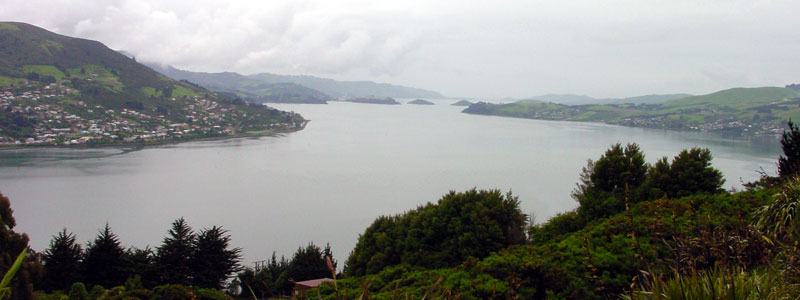
Healthy Harbour Watchers is a Community-Based Water Quality Monitoring Programme based in the Department of Chemistry at The University of Otago.
We are always looking for volunteers to help with collection and analysis of water samples from the Otago Harbour!
Healthy Harbour Watchers meet in the University of Otago Chemistry Department located at 700 Cumberland St. N.

We meet in the 2nd Floor of the Mellor Laboratories; access the building from the carpark between the Chemistry and Biochemistry buildings.
For more information contact Andrew Innes on 03 477 4674 or 021 0239 1950 or by email at andrew_innes09@hotmail.com
About us
The Healthy Harbour Watchers programme began in 2004 when Andrew Innes, a science teacher at John McGlashan College, received a Science, Mathematics and Technology Teacher Fellowship from The Royal Society of New Zealand.
The intent of Healthy Harbour Watchers is to transfer knowledge and skills related to the chemical analysis of seawater, and to that end, Healthy Harbour Watchers has helped hundreds of high-school students and volunteers to collect and analyse water samples from various marine and freshwater sites around Dunedin over the past six years. The students and volunteers meet at the Chemistry Department at The University of Otago and then work in groups to collect data and water samples from nine standard sites around Otago Harbour. Temperature, salinity, pH, and dissolved oxygen are measured in the field. Water samples are collected at each site and brought back to the Chemistry Department, where students and volunteers determine concentrations of dissolved reactive phosphorus (DRP), nitrate/nitrite nitrogen (NNN), chlorophyll-a (chl-a), dissolved oxygen, and counts of Enterococci spp. bacteria using a suite of spectrophotometric, titrimetric, and microbiological techniques.
The Healthy Harbour Watchers programme allows students and volunteers to perform independent investigations into water-quality parameters using a range of quantitative analysis methods within the context of an overall analysis of an environmental sample. Students and volunteers are encouraged to design their own experiments, and to think independently to solve problems in a laboratory setting. Not every student performs every analysis, but at the end of each session, all of the participants work together to assemble their data into a meaningful report. The students and volunteers are introduced to a range of instrumental techniques for chemical analysis of natural water while working in a laboratory-centred learning environment within the Chemistry Department at The University of Otago.
